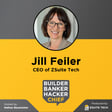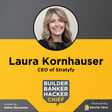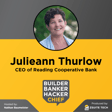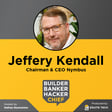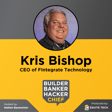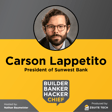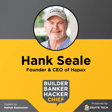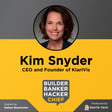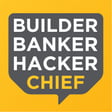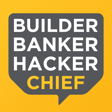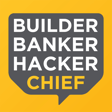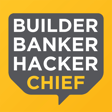
Lee Farabaugh – Designing software for humans, playing without fear, and the essential qualities of a leader | Episode 4
Welcome to episode four of Builder, Banker, Hacker, Chief! The guest on today’s show is Lee Farabaugh, Co-founder and President at Core10, a fintech that specializes in developing products for financial institutions.
On this show, I’m unpacking the stories, decisions, and influences that make people successful leaders. Thanks to Lee’s background in fine arts, user experience, and health informatics, she brings a fresh perspective to the world of community banking and everything she touches.
My name is Nathan Baumeister; I am the Co-founder and CEO of ZSuite Tech and the host of this podcast.
Here’s what you need to know about Lee Farabaugh: she’s a leader of incredible depth and wide-ranging interests. She’s been practicing graphic design since she was a child, she studied oil painting, worked at Toyota, Delta, Northrup Grumman, and all that while knocking down two master’s degrees and eventually helping found two successful companies. Did I mention she was also a competitive road cyclist and is a wife and mother?
The point is, that Lee forged a path to executive leadership on a winding road, guided by curiosity and a desire to play with technology. Her wide-ranging skill set and passion for excellence gave her a high level of mastery in multiple fields, when most people are thrilled to master one. Along the way, Lee learned the importance of releasing control to her team, and tackling the mental, emotional, and spiritual work that is required to be a trustworthy leader.
The wisdom she shares in this episode gave me a lot to think about in my own growth as a leader – I believe it will do the same for you.
Resources:
Lee’s media recommendations:
Falling Upward: A Spirituality for the Two Halves of Life
Nine Essential Things I've Learned About Life
Connect:
